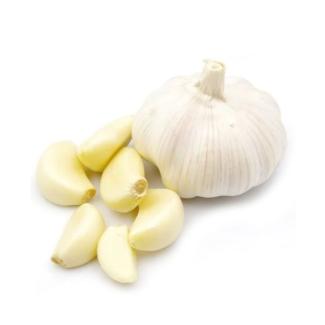
A dry, irritating cough can be an uncomfortable and persistent issue that disrupts daily life and sleep. This type of cough is often caused by irritation or inflammation in the throat or airways, and it can be triggered by a range of factors including allergies, dry air, viral infections, or environmental pollutants. While medical treatments are available, many individuals seek relief through home remedies that are both effective and natural. Among these, honey and lemon have long been favored for their soothing and therapeutic properties. This comprehensive description will explore how honey and lemon can be used to alleviate a dry cough and delve into other effective ingredients and remedies supported by scientific research.
How to Cure a Dry, Irritating Cough at Home with Honey and Lemon
A. Honey and Lemon Tea
Honey and lemon tea is a popular home remedy for soothing a dry cough. Both ingredients have properties that can help ease throat irritation and reduce coughing.
- Ingredients:
- 1 tablespoon of honey
- 1 tablespoon of freshly squeezed lemon juice
- 1 cup of warm water or herbal tea (such as chamomile or ginger tea)
- Instructions:
- Heat the water or herbal tea until warm, but not boiling.
- Stir in 1 tablespoon of honey and 1 tablespoon of lemon juice.
- Mix well and sip slowly while the tea is still warm.
- Benefits: Honey has natural antibacterial and anti-inflammatory properties. It coats the throat, which can reduce irritation and the urge to cough. Lemon juice adds vitamin C and has a mild antibacterial effect, which can help combat underlying infections and support immune function.
- Scientific Support: A study published in Pediatrics in 2007 found that honey can be effective in reducing nighttime coughing and improving sleep in children with upper respiratory infections. Lemon’s role in boosting vitamin C levels is well-documented, with research published in Nutrients in 2017 showing that vitamin C can reduce the duration and severity of cold symptoms.
B. Honey-Lemon Syrup
A simple syrup made from honey and lemon can also be effective in alleviating a dry cough.
- Ingredients:
- 2 tablespoons of honey
- 1 tablespoon of lemon juice
- Instructions:
- Combine the honey and lemon juice in a small bowl.
- Take one teaspoon of the mixture several times a day as needed.
- Benefits: This syrup can provide immediate relief by coating the throat and reducing irritation. The high sugar content of honey helps to soothe the throat, while lemon juice helps to clear mucus and provides a refreshing taste.
- Scientific Support: Research into the effectiveness of honey as a cough suppressant is extensive. A study published in The Cochrane Database of Systematic Reviews in 2010 reviewed multiple studies and confirmed that honey is effective in reducing cough frequency and severity.
C. Steam Inhalation with Honey and Lemon
Steam inhalation can help loosen mucus and relieve throat irritation.
- Ingredients:
- A few slices of lemon
- 1 tablespoon of honey
- Hot water
- Instructions:
- Fill a large bowl with hot water.
- Add the lemon slices and honey to the water.
- Lean over the bowl, cover your head with a towel, and inhale the steam for 5-10 minutes.
- Benefits: The steam helps to moisten dry and irritated airways, while honey and lemon in the water can enhance the soothing effect.
- Scientific Support: Steam inhalation is a commonly used method for alleviating respiratory symptoms. A study published in The Journal of Laryngology & Otology in 2013 found that steam inhalation can be beneficial for relieving symptoms of respiratory tract infections.
Other Effective Ingredients for Stopping Coughing
In addition to honey and lemon, several other natural ingredients have been shown to be effective in alleviating coughs. Here is a detailed look at some of these ingredients, supported by scientific research.
A. Ginger
Ginger is renowned for its anti-inflammatory and anti-cough properties. It can help soothe the throat and reduce coughing.
- Preparation: Slice fresh ginger and steep it in boiling water for 10 minutes to make ginger tea. You can add honey and lemon to enhance the flavor and benefits.
- Scientific Support: A study published in Phytotherapy Research in 2013 demonstrated that ginger has significant anti-inflammatory effects, which can be beneficial for treating coughs and sore throats.
B. Turmeric
Turmeric contains curcumin, a compound with powerful anti-inflammatory and antioxidant properties. It can help reduce inflammation in the throat and ease coughing.
- Preparation: Mix 1 teaspoon of turmeric powder with warm milk or water. Drink this mixture 1-2 times a day.
- Scientific Support: Research published in Journal of Medicinal Food in 2009 indicates that curcumin has strong anti-inflammatory and antioxidant properties, which can help reduce coughing and throat irritation.
C. Peppermint
Peppermint contains menthol, which acts as a natural decongestant and has soothing effects on the throat.
- Preparation: Drink peppermint tea or inhale peppermint steam. To make peppermint tea, steep peppermint leaves in boiling water for 5-10 minutes.
- Scientific Support: A study published in Journal of Ethnopharmacology in 2006 found that peppermint has decongestant and soothing effects, making it useful for relieving coughs and respiratory symptoms.
D. Thyme
Thyme has antimicrobial and anti-inflammatory properties that can help with coughs and sore throats.
- Preparation: Make thyme tea by steeping fresh or dried thyme in boiling water for 10 minutes. Drink the tea 2-3 times a day.
- Scientific Support: Research published in Journal of Clinical Medicine in 2018 highlighted thyme’s effectiveness in treating respiratory infections and reducing cough symptoms.
E. Marshmallow Root
Marshmallow root contains mucilage, which can help coat and soothe the throat.
- Preparation: Make a tea by steeping marshmallow root in boiling water for 10-15 minutes.
- Scientific Support: A study published in Phytotherapy Research in 2012 found that marshmallow root has mucilaginous properties that can soothe the throat and reduce coughing.
F. Slippery Elm
Slippery elm is another herb that contains mucilage, which coats and soothes the throat.
- Preparation: Mix slippery elm powder with warm water to make a soothing tea.
- Scientific Support: Research published in Journal of Herbal Pharmacotherapy in 2008 showed that slippery elm’s mucilage helps to coat the throat and alleviate coughs.
A dry, irritating cough can be effectively managed using a combination of home remedies and natural ingredients. Honey and lemon are well-documented for their soothing and therapeutic properties, providing immediate relief and supporting overall respiratory health. Additionally, ingredients like ginger, turmeric, peppermint, thyme, marshmallow root, and slippery elm have been shown through scientific research to alleviate cough symptoms and support respiratory health. By incorporating these remedies into your routine, you can find relief from a persistent cough and improve your overall comfort and well-being. However, if symptoms persist or worsen, it is important to seek medical advice to rule out any underlying conditions.






